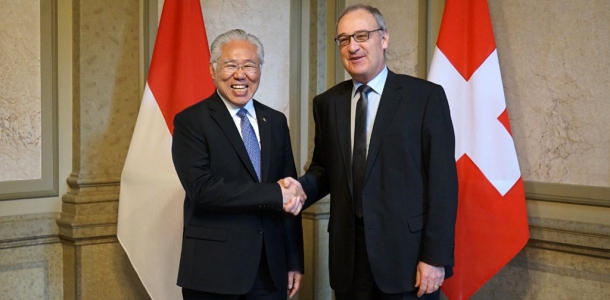Jakarta’s Intelligent Traffic Control System (ITCS) is giving the city a smarter way to handle traffic. Powered by artificial intelligence, it keeps a constant eye on traffic flow at intersections, analyzing conditions in real time and adjusting signals to ease congestion.
“Jakarta’s Transportation Agency is already using Artificial Intelligence to manage the city’s traffic, specifically through the Intelligent Traffic Control System (ITCS).” said Governor Pramono Anung.
“In short, I see that this system is quite good, though it still has some shortcomings.”
“A report from the Transportation Agency states that since ITCS was implemented, Jakarta’s global traffic congestion ranking has shifted, from the 30th most congested city to the 90th. That means an extraordinary improvement of 60 places.”
Key Features of ITCS
- Self-Adaptive Signals: Adjusts traffic light timing automatically, based on how many vehicles are moving through each intersection and where they’re going.
- Coordinated Green Waves: Syncs traffic lights along major roads so vehicles hit more green lights in a row, reducing stop-and-go and keeping traffic flowing smoothly.
- Bus Priority Detection: License plate recognition to spot approaching buses, giving them priority at intersections so they can move through traffic more easily.
- Virtual Traffic Models: The system simulates traffic patterns in advance to predict congestion and adjust signal timings before problems build up.
- Recognition Systems: Identifies vehicle types and reads license plates, allowing it to spot violations such as illegal turns or restricted lane usage.
- 50‑Person Monitoring Team & CRM‑Linked Call Center: Dishub has 25 operators on each shift monitoring CCTV feeds across the city. Traffic-related complaints are handled within three hours through a system connected to Jakarta’s customer service platform.
Significant Improvements by ITCS
Since its rollout across 65 of Jakarta’s 321 key intersections, Traffic flow has improved significantly. Average commute delays have dropped by approximately 30%, making daily travel more efficient for residents. Additionally, emissions have decreased, contributing to better air quality. Improved traffic flow has led to greater fuel efficiency, reducing overall energy consumption. As ITCS continues to expand, these benefits are expected to grow, easing congestion and making Jakarta’s streets more sustainable.
Looking Ahead
Jakarta’s ITCS is driving the city into the next era of smart urban management, using AI and data to improve traffic flow. As the system expands and enforcement strengthens, expats can expect smoother travel. As Jakarta rises in global traffic rankings, its investment in technology is starting to show results. Consequently, daily commutes are becoming easier, and overall city life is growing more efficient.
ITCS is proving to be a smart, scalable solution to Jakarta’s rush hour. AI-led signal control and real-time monitoring have improved how traffic is managed across the city. Additionally, a clear roadmap for full-scale deployment and enforcement integration is in place. As a result, both residents and expats experience less time stuck in traffic, cleaner air, and smoother, more efficient commutes.
Sources: Antara, BeritaJakarta. Featured Image.


